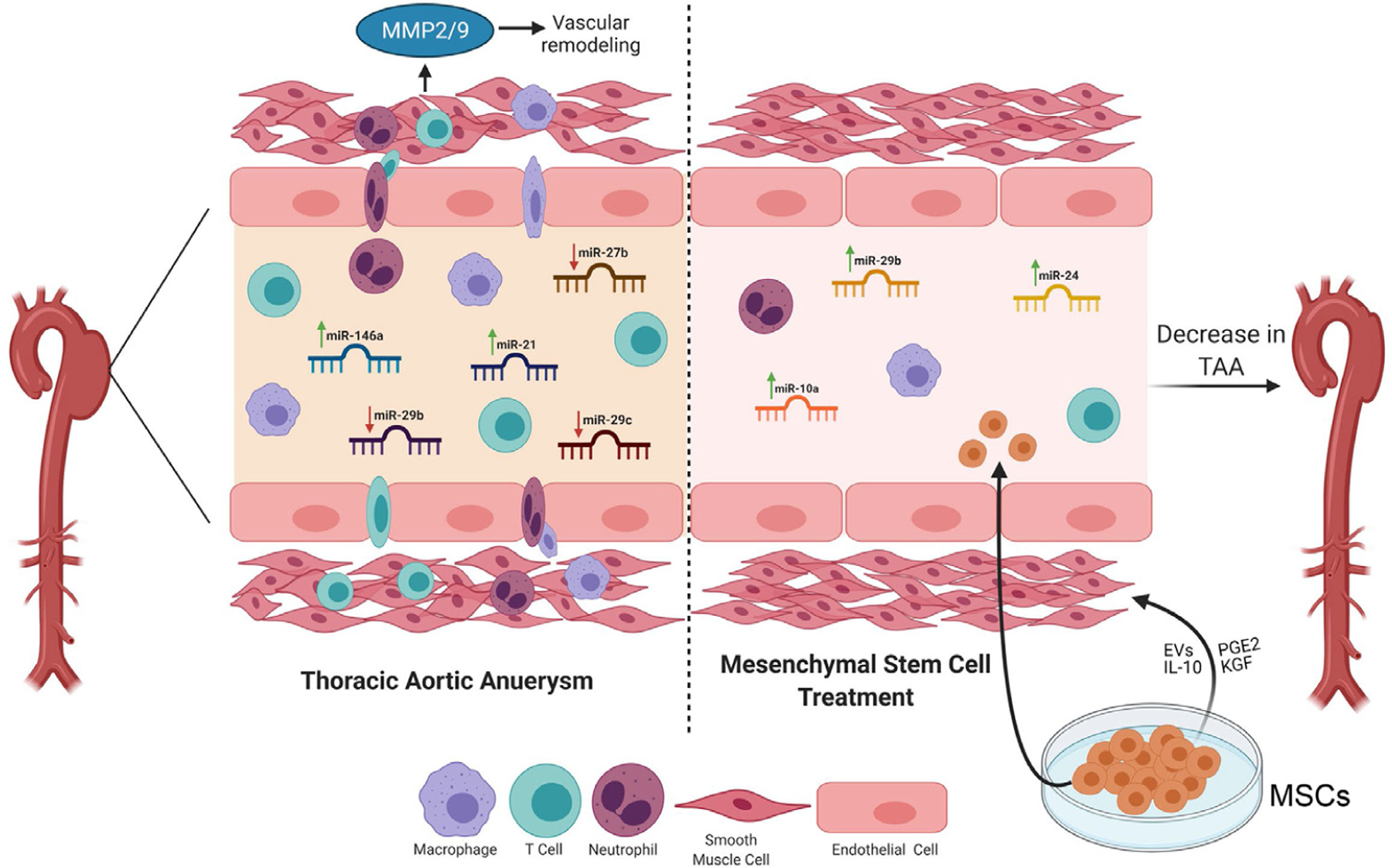Fig. 5 –

Schematic description of MSC-mediated attenuation of TAA. Upregulation of specific miRNAs that is, miR-146a and miR-21, as well as downregulation of miR-29b, miR-29c and miR-27b, is associated with leukocyte infiltration, aortic inflammation and loss of smooth muscle cell activation leading to vascular remodeling and TAA formation. Treatment with MSCs can lead to upregulation of miR-24, miR-29b and miR-10a that mitigates endothelial permeability and leukocyte transmigration, thereby preventing elastin degradation and preserving smooth muscle cell integrity. MSCs can exert anti-inflammatory effects via direct cell-cell interactions and/or via paracrine secretions to immunomodulate aortic inflammation and vascular remodeling and prevent TAA formation. EVs = extracellular vesicles; MSC = mesenchymal stem cell; PGE2 = prostaglandin E2; KGF = keratinocyte growth factor; MMP = matrix metalloproteinases.
